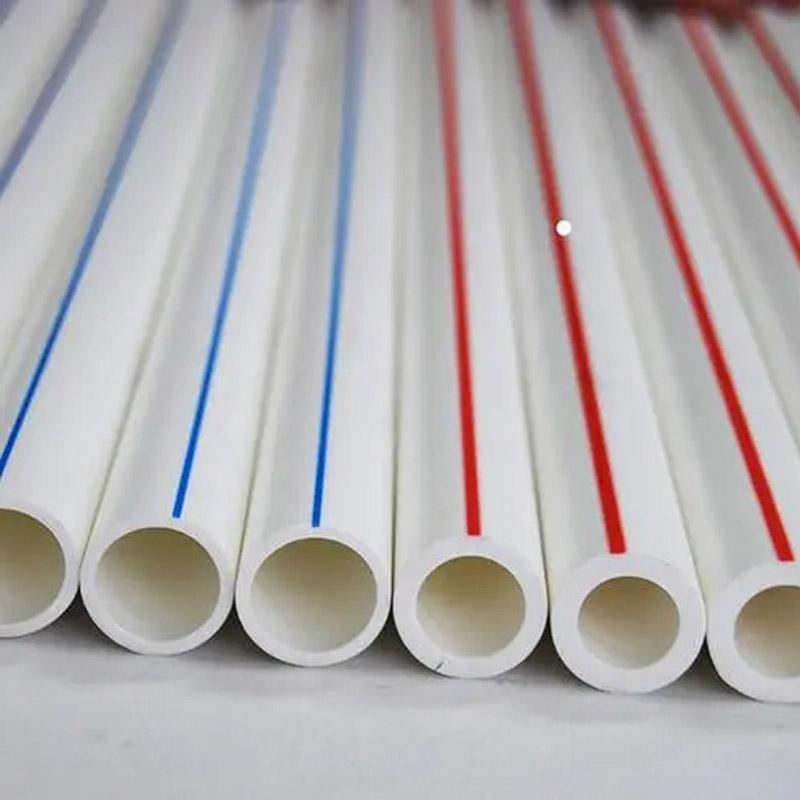Oct . 15, 2024 06:14 Back to list
Top Manufacturers of PVC Sprinkler Pipes for Efficient Irrigation Solutions
Overview of PVC Sprinkler Pipe Manufacturers
In the realm of irrigation and water management, PVC (Polyvinyl Chloride) sprinkler pipes have emerged as a popular choice for efficient, durable, and cost-effective solutions. Their lightweight nature, resistance to corrosion, and ease of installation position them as a preferred material in agricultural, commercial, and residential applications. This article delves into the world of PVC sprinkler pipe manufacturers, highlighting their significance, production processes, and the benefits these pipes provide.
The Importance of PVC in Irrigation
PVC has transformed the irrigation industry due to its numerous advantages. It is less prone to degradation compared to traditional materials like metal or wood, making it an ideal option for various climates. The flexibility and strength of PVC enable it to withstand varying pressures associated with irrigation systems. Furthermore, PVC pipes are easy to transport and install, reducing labor costs and time involved in setting up irrigation networks.
As agriculture faces increasing challenges, such as water scarcity, PVC pipes present a sustainable solution that can optimize water usage and improve crop yields. Because of these properties, manufacturers are continuously innovating to enhance the quality and performance of PVC sprinkler pipes.
Manufacturing Process of PVC Sprinkler Pipes
The production of PVC sprinkler pipes encompasses several critical steps, which ensure that the final product meets both domestic and international quality standards.
1. Raw Material Selection The primary ingredient for PVC pipes is polyvinyl chloride resin. Quality manufacturers source high-grade resin from reputable suppliers to ensure durability and performance.
2. Compounding The raw resin is mixed with additives, such as stabilizers, lubricants, and colorants, to enhance properties like UV resistance, impact strength, and flexibility. This mixture is then processed into a uniform compound.
3. Extrusion The compounded PVC is heated and pushed through a die in an extrusion machine to form the desired pipe shape. The extrusion process must be closely monitored to maintain consistent wall thickness and diameter.
4. Cooling After extrusion, the pipes undergo a cooling process to maintain their structural integrity. This is often achieved through a water bath or air cooling system that solidifies the material.
5. Cutting and Quality Inspection Once cooled, the pipes are cut to standard lengths and subjected to rigorous quality control measures. Manufacturers test for dimensional accuracy, pressure tolerance, and surface defects to ensure that each pipe is fit for its intended use.
pvc sprinkler pipe manufacturers

Leading PVC Sprinkler Pipe Manufacturers
Several manufacturers have gained prominence in the PVC sprinkler pipe sector, recognized for their commitment to quality, innovation, and customer service. Some notable names include
1. Charlotte Pipe and Foundry One of the largest manufacturers of PVC piping products in the United States, Charlotte Pipe focuses on creating high-quality pipes for various applications, including irrigation.
2. JM Eagle Known for its extensive range of PVC products, JM Eagle prides itself on producing durable and environmentally friendly pipes while undertaking significant initiatives for sustainable manufacturing practices.
3. Astral Pipes Operating primarily in the Indian market, Astral Pipes offers a variety of PVC pipes designed to meet the specific needs of agriculture and landscaping, continuously striving for technological advancements.
4. Jain Irrigation A leading integrated irrigation company, Jain Irrigation provides a comprehensive range of PVC sprinkler pipes, focusing on innovative solutions to increase water use efficiency in agriculture.
Benefits of Choosing PVC Sprinkler Pipes
Investing in PVC sprinkler pipes brings several benefits to users
- Cost-Effective Compared to traditional materials, PVC pipes offer lower initial costs and reduced maintenance expenses over time. - Durability They possess high resistance to corrosion, ensuring a long lifespan even in harsh environmental conditions. - Flexibility PVC pipes can adapt to various installation requirements, making them suitable for different terrains and configurations. - Ease of Use Their lightweight nature facilitates straightforward handling and installation, expediting the setup process.
Conclusion
In summary, PVC sprinkler pipe manufacturers play a crucial role in enhancing irrigation efficiency and sustainability. With advancements in manufacturing technologies and an increasing awareness of water management's importance, these manufacturers continue to deliver innovative solutions that cater to the evolving needs of the agricultural and landscaping industries. By opting for PVC pipes, users can expect reliable performance, contributing to a better future for global water management and agricultural productivity.
-
High-Quality PVC Borehole Pipes Durable & Versatile Pipe Solutions
NewsJul.08,2025
-
High-Quality PVC Perforated Pipes for Efficient Drainage Leading Manufacturers & Factories
NewsJul.08,2025
-
High-Quality PVC Borehole Pipes Durable Pipe Solutions by Leading Manufacturer
NewsJul.08,2025
-
High-Quality PVC Borehole Pipes Reliable PVC Pipe Manufacturer Solutions
NewsJul.07,2025
-
High-Quality UPVC Drain Pipes Durable HDPE & Drain Pipe Solutions
NewsJul.07,2025
-
High-Quality Conduit Pipes & HDPE Conduit Fittings Manufacturer Reliable Factory Supply
NewsJul.06,2025

